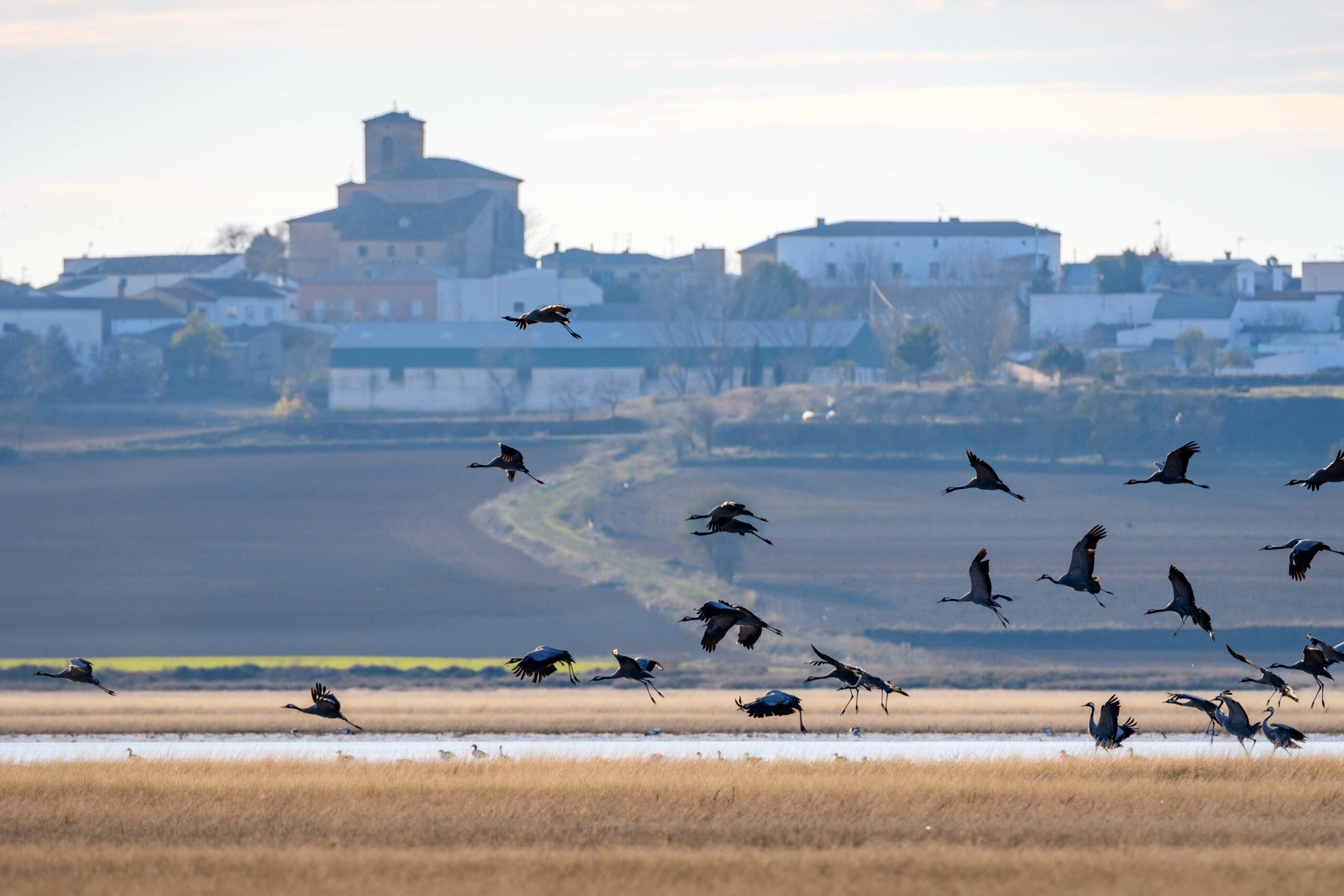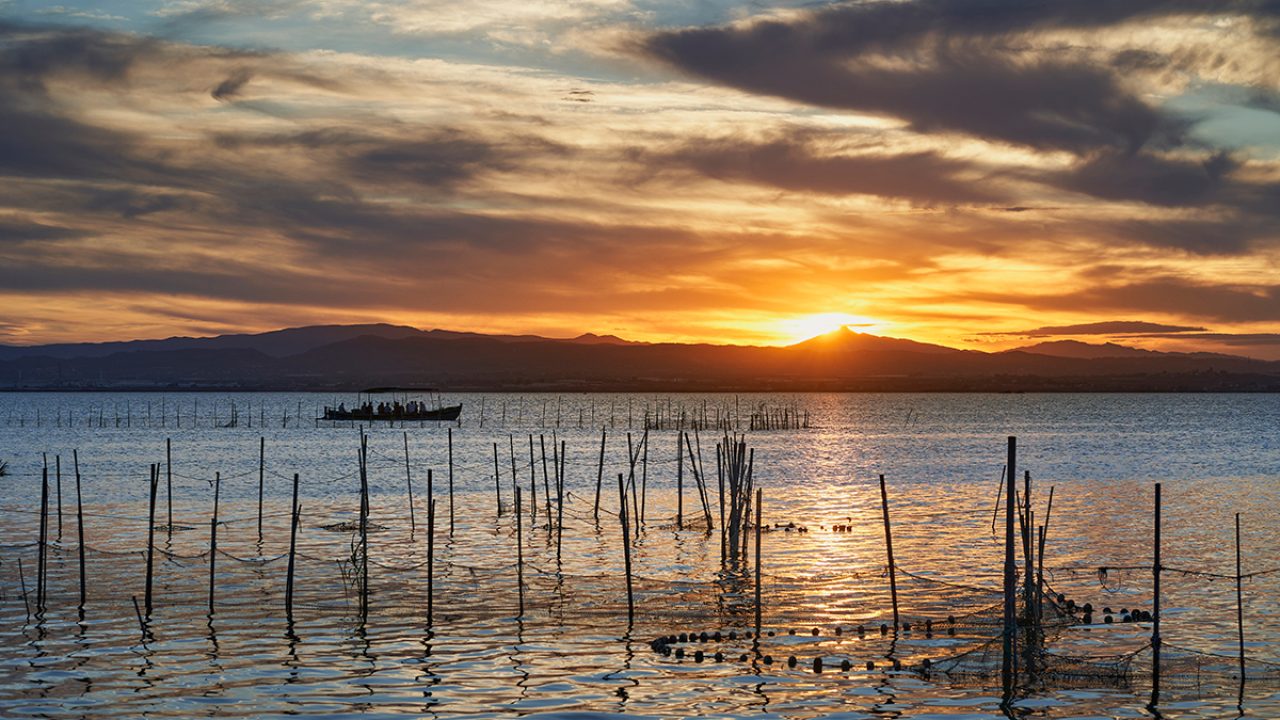The IUCN World Conservation Congress is held every four years, bringing together governments, civil society organisations, Indigenous Peoples’ groups, scientists and businesses from all over the world. It is the highest decision-making body of the International Union for Conservation of Nature (IUCN), where members vote on motions that guide global conservation priorities.
The 2025 Congress in Abu Dhabi comes at a pivotal moment, as the twin crises of biodiversity loss and climate change demand urgent, coordinated action.
Within this context, partners of the Living Lakes Biodiversity and Climate Project (LLBCP) have successfully placed wetlands at the centre of the debate through two motions submitted to the Congress. Backed by the Living Lakes Network, these proposals highlight wetlands as essential Nature-based Solutions for climate mitigation, adaptation and biodiversity protection.
Electronic voting by IUCN Members will take place between 27 August and 10 September 2025. The adoption of these motions would not only shape IUCN’s programme of action but also generate stronger political momentum worldwide for the preservation and restoration of wetlands.

Motion 023: Prioritising wetlands for climate and biodiversity solutions
Submitted by Fundación Global Nature (FGN, Spain), Motion 023 – “Prioritising wetland conservation and restoration to tackle the dual climate and biodiversity crises” addresses all wetland types, from coastal mangroves to high mountain peatlands, floodplains and even urban wetlands.
The motion stresses that wetlands are disappearing three times faster than forests, with more than 85% already lost or severely degraded worldwide. It highlights wetlands as carbon sinks, buffers against extreme weather, water regulators and biodiversity hotspots—while warning that when degraded, they can become significant greenhouse gas emitters.
Motion 023 calls on IUCN Members, governments and local authorities to:
-
Integrate ambitious wetland targets into Nationally Determined Contributions (NDCs), National Adaptation Plans (NAPs) and National Biodiversity Strategies and Action Plans (NBSAPs).
-
Ensure that wetland-based Nature-based Solutions are fully recognised in multilateral frameworks such as the UNFCCC, CBD, UNCCD and Ramsar Convention.
-
Mobilise finance for large-scale restoration, including through innovative public–private partnerships.
-
Support the inclusion of teal and blue carbon credits in voluntary carbon markets, with strong safeguards for biodiversity, geodiversity and the rights of Indigenous Peoples and Local Communities.
By doing so, Motion 023 positions wetlands as indispensable for delivering the Paris Agreement, the Kunming–Montreal Global Biodiversity Framework, the 2030 Agenda for Sustainable Development and the Sendai Framework for Disaster Risk Reduction.
Powered By EmbedPress
Motion 024: Safeguarding high mountain wetlands in Latin America
Submitted by Fundación Humedales (FH, Colombia), Motion 024 – “Declaration on the urgent preservation of high mountain wetlands in Latin America and other regions of the world” focuses on the páramos, peatlands and alpine lakes of the Andes and other mountain regions.
These fragile ecosystems regulate water supplies for millions of people, capture carbon and host unique biodiversity. Yet they face increasing threats from mining and infrastructure linked to the energy transition, expanding agriculture, urbanisation and the decline of traditional management practices.
Motion 024 calls on governments, the private sector and international organisations to:
Conserve, sustainably manage and restore high mountain wetlands with the active involvement of local and Indigenous communities.
Recognise their ecological, hydrological, social, cultural and economic value in public policies.
Establish legal frameworks and financial incentives for protection, ensuring respect for human rights and the principle of free, prior and informed consent.
Promote joint agendas with multilateral banks and international cooperation to address pressures such as mining, aquaculture and illegal activities.
Support scientific research, geodiversity inventories and the preservation of cultural heritage, linking wetland conservation with education and sustainable tourism.
While Motion 023 provides a global mandate, Motion 024 delivers a regional focus, reinforcing the importance of high mountain wetlands in Latin America and uniting ecological priorities with Indigenous cultural heritage.
Powered By EmbedPress
A shared vision through the LLBCP
Both motions are deeply rooted in the work of the Living Lakes Biodiversity and Climate Project (LLBCP), coordinated by the Global Nature Fund and implemented with partners in ten countries across Latin America, Africa and Asia. The LLBCP promotes wetland conservation and restoration through capacity building, demonstration projects and international advocacy.
The Living Lakes Network, with more than 130 organisations in over 60 countries, has for 25 years connected local conservation initiatives with international policy frameworks. The submission of Motions 023 and 024 exemplifies how grassroots and regional experiences can shape global decisions at the IUCN Congress.
Conclusion
Wetlands are among the most powerful yet undervalued solutions to address the urgent climate and biodiversity crises. The adoption of Motions 023 and 024 at the IUCN World Conservation Congress 2025 would mark an important step toward recognising wetlands as global priorities, providing both a worldwide mandate and a regional pathway for action.
Through these initiatives, Living Lakes and its partners reaffirm that freshwater ecosystems are not peripheral landscapes, but central to the future of people and planet.
This initiative is funded by BMUKN through IKI and supported through the financial and mutual support of the German Postcode Lottery, Kärcher, Lonza, Ground Lake, Georg Fischer Foundation, and many individual donors.

